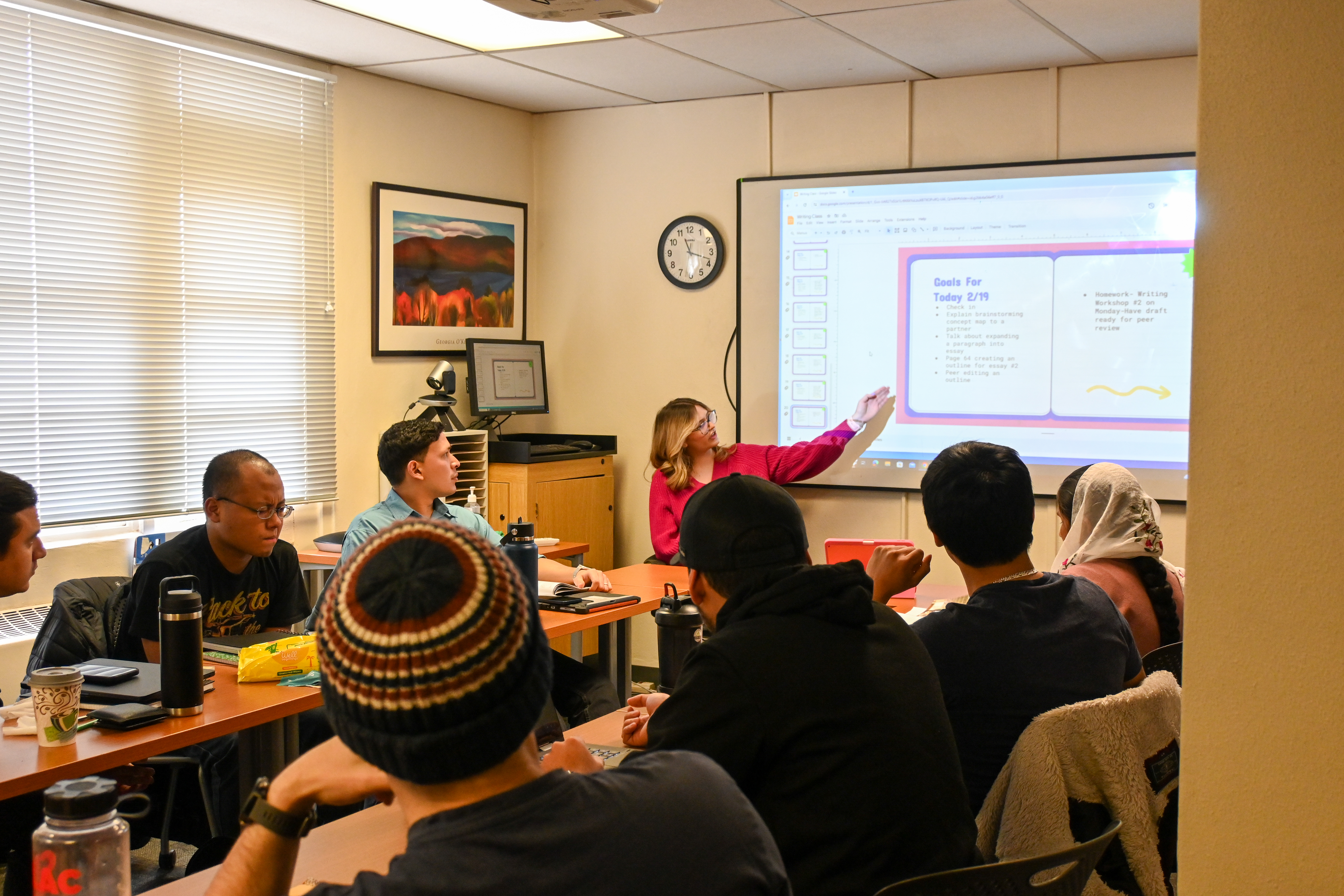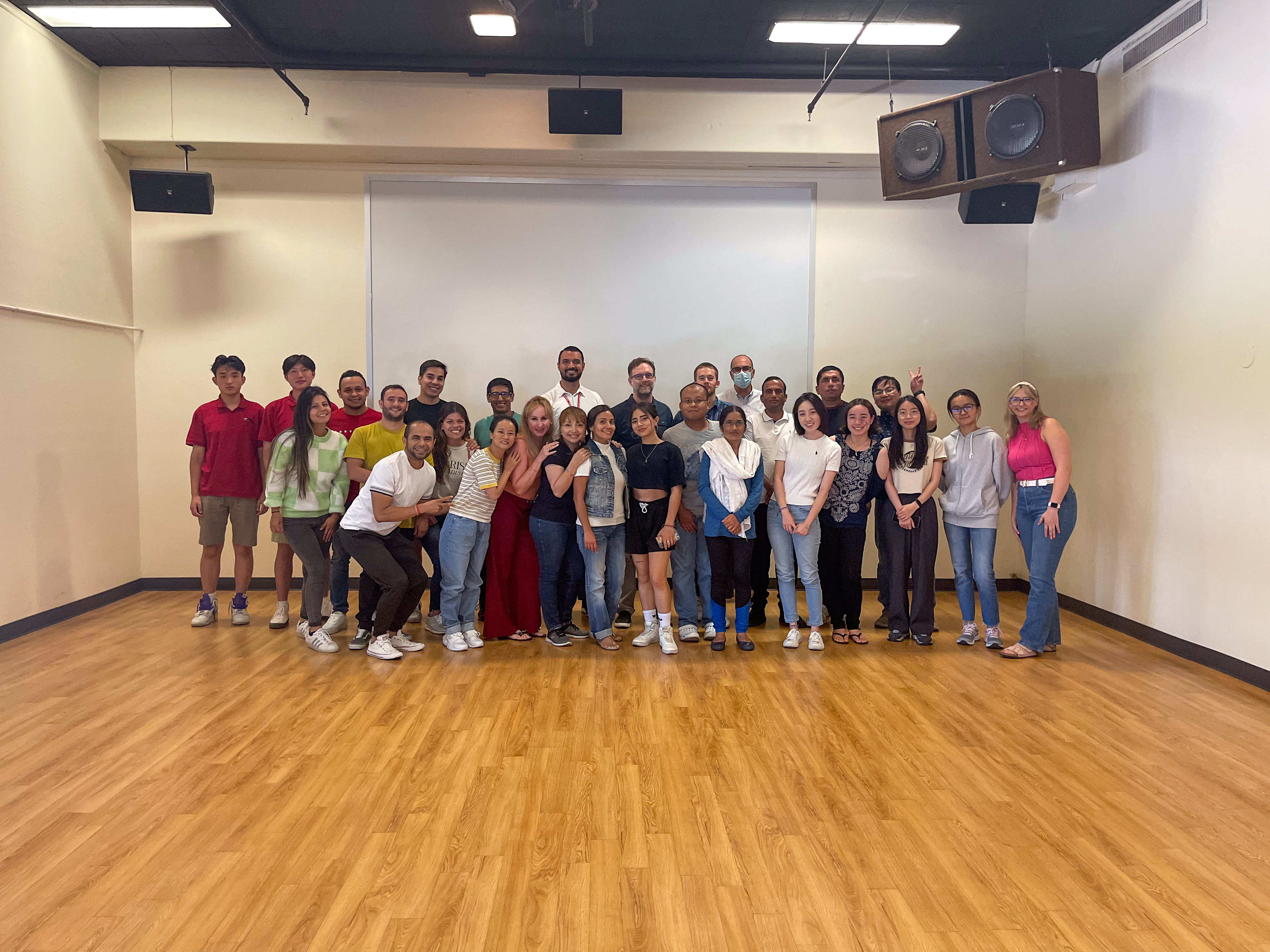CELAC course levels
Apply Now
Low-Intermediate
Students review basic comprehension skills, increase vocabulary and critical thinking skills. They will learn basic English writing skills such as punctuation, topic sentences, paragraph organizations, and transitional expressions. Students develop speaking skills in both formal and informal situations, focusing on interesting conversation topics as a way to naturally develop English language skills and expand vocabulary. In addition, students will learn everyday grammar structure, vocabulary, and pronunciation with practice in listening, speaking, and writing.
Intermediate
Students review reading comprehension skills including word parts and context clues to better understand new vocabulary. This level focuses on strategies and skills to help students determine the central themes and main ideas of readings from a variety of sources. Students are provided with the fundamental writing skills required for future academic study and will gain an understanding of the mechanics, organization, and process of English writing. Students study different purposes of paragraphs and essays including narrative, descriptive, and expressive writing. Students will be provided with numerous opportunities to listen, process, and react to different situations and viewpoints through challenging and imaginative conversation scenarios, as well as group discussions.
High-Intermediate
Students will develop academic English vocabulary and improve English reading comprehension and reading rate through topics such as skimming and scanning, TOEFL style reading, inferential and critical reading, vocabulary development, analysis of basic discourse functions, paraphrasing and summarizing reading content. Students will also learn to develop their paragraphs into longer essays with a strong thesis statement and effective supporting details. Students are required to actively participate in all class activities and discussions. Practice is communicative and includes both oral and written work, designed to reinforce and perfect students’ grammar usage.
Advanced
Students will study different types of literature as well as critical and personal responses to required readings. Whether students are reading a blog or a literary masterpiece, students’ participation must be as an active reader, questioning, interpreting, and drawing their own conclusions about the material presented. Students will learn writing techniques for various genres such as narration, description, argumentation, exposition, cause and effect, comparison and contrast, definition and classification essays. Students will engage in daily conversations derived from many sources: the textbook, media sources, and fellow students. Students review both essential and finer points of the grammatical features of academic English with an emphasis placed on active production and error analysis.
Academic Bridge
This level includes part-time enrollment in University of New Mexico academic classes while taking part-time CELAC classes. Students develop reading skills necessary for success in all academic subjects. Students will improve skills in vocabulary and comprehension, summarizing, interpreting, reading critically, and drawing conclusions. Students learn how to construct summaries, paragraphs, and essays of different types, or “rhetorical modes.” They will also develop strategies for building a research paper and for collaborating with others on academic projects. This course is designed to teach students the academic listening and speaking skills needed to succeed in college and university content courses. Students will work on listening comprehension and note-taking skills using audio and video, conversation strategies, and delivery skills in oral presentations. Students will focus on specific grammar points in standard American English which are often more difficult for a non-native English speaker to master. Instruction is at the advanced level using a variety of practice activities in all four-skill areas: listening, speaking, reading, and writing.



